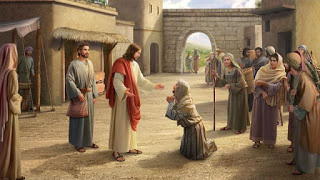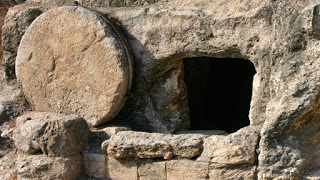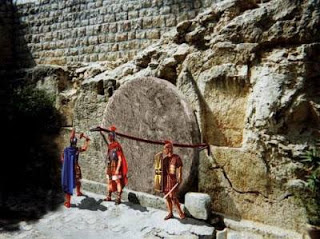Dad, Mom, and their two children—one ten years old, the other seven—were full of excitement as they settled into their new home. After unpacking and organizing most of their belongings, they decided it was time to refresh the interior with new colors. They had already discussed their vision, so without delay, they purchased the paint and got to work.
They began with the main room, determined to finish it that very day, no matter how late it got. Immersed in the task, time slipped away unnoticed. Eventually, the father glanced at his watch and was startled to see that it was midnight—and the kids were still up.
Just then, the younger child walked into the room. The father asked him where his brother was. “Watching television,” the boy replied. Without hesitation, the father instructed, “Tell him to turn off the TV immediately and both of you go to bed.”
Obediently, the younger son went to relay the message. Approaching his older brother, he said, “Dad says to turn off the television right now and go to sleep.”
At that moment, the older boy found himself caught in a dilemma. He considered the possibility that his younger brother might be making it up—as a clever trick to get him to shut off the television, just so he could sneak back and watch his favorite program once the coast was clear.
But what if the message was real? What if his brother was truly acting as a messenger of their father’s authority? Ignoring the command could get him in trouble.
How could he be sure the message was genuine? How could he know he could trust the messenger?
Common sense often tells us that the dilemma between obeying or disobeying a command should be easily resolved by the authority of the one who issues it. If the source is credible and legitimate, the expectation is that the command will be followed. And yet, from the very beginning of human history, we encounter examples of disobedience—even in the face of unquestionable authority.
In the Garden of Eden, God gave a clear and solemn command to our first parents, Adam, and Eve: they were not to eat from the tree of the knowledge of good and evil, for if they did, they would surely die. A simple, unequivocal directive from the Creator Himself. Yet the serpent entered the scene and contradicted God’s word, assuring Eve that they would not die and, in fact, would become like gods, knowing good and evil.
At that moment, a choice had to be made. Whom should they believe—God, the omniscient Creator, or the serpent, a creature with an enticing but contradictory message? On the surface, the right choice seems obvious. And yet, we know what Adam and Eve chose. We also know the consequences of that fateful decision—an act of disobedience that echoed through history.
Centuries later, another moral and spiritual crisis unfolded—this time in the shadowed garden of Gethsemane and in the courts of human judgment. Jesus, arrested and brought before the Jewish Sanhedrin on charges of blasphemy for declaring Himself the Son of God, was condemned and sent to the Roman governor Pontius Pilate to authorize His execution.
Pilate questioned Jesus in the Praetorium, as recounted in the Gospel of John (18:33–38). He asked, “Are you the King of the Jews?” Jesus responded not with a direct answer, but with a probing question of His own: “Are you asking this on your own, or have others told you about me?”
Pilate, unsettled, replied, “Am I a Jew? Your own people and chief priests have handed you over to me. What is it you have done?”
Then Jesus offered a profound answer: “My kingdom is not of this world. If it were, my servants would fight to prevent my arrest by the Jewish leaders. But now my kingdom is from another place.” (John 18:36).
The charge of blasphemy meant little to the Roman governor, Pontius Pilate. In the context of pagan Rome—where a pantheon of gods flourished and divine claims were common—the idea of someone proclaiming himself to be the Son of God was not particularly alarming. To Roman ears, such accusations often sounded trivial, even absurd. But when Jesus spoke of a “kingdom,” Pilate’s attitude shifted. This was no longer a matter of religious semantics—it now touched the realm of politics and imperial authority, a matter that very much fell under Roman jurisdiction.
So, Pilate pressed further: “Then you are a king?” Jesus not only affirmed the title but also unveiled the purpose of His entire life: “I was born and came into the world to testify to the truth” (John 18:37).
In this exchange, we encounter a man who boldly claims to be the Son of God—a man who fulfills the ancient prophecies concerning the Messiah. But how can we verify such authority? How can we know that He truly was God’s messenger?
As God declared to Moses in Deuteronomy 18:15–22, a prophet is either true or false—there is no middle ground. If every prophecy that pointed to the coming of the Messiah was fulfilled in the person of Jesus, then the prophetic foundation validating His identity holds firm. And if those prophets were proven true by the fulfillment of their words, what basis remains to reject the one to whom they pointed?
Still, Jesus’ miracles—extraordinary though they were—were not presented by Him as the definitive proof of His divine nature. When the Pharisees and Sadducees demanded a sign, He did not cite the raising of Lazarus, or the feeding of thousands with five loaves and two fish. He did not mention giving sight to the blind or making the paralyzed walk. He offered none of these as proof.
Instead, He pointed to one singular event: His resurrection. “No sign will be given,” He said, “except the sign of Jonah”—a reference to His rising from the grave after three days. That, He declared, would be the ultimate validation of His identity. Unlike any prophet before Him, Jesus claimed that He would conquer death itself.
And so, the resurrection stands as the cornerstone of Christianity. If Jesus rose from the dead, then every word He spoke is vindicated, every promise confirmed. But if He did not—if the resurrection is a lie, a fabrication, or a delusion—then the entire edifice of Christian faith collapses.
This is the hinge upon which everything turns. As the Apostle Paul wrote, “If Christ has not been raised, our preaching is useless and so is your faith” (1 Corinthians 15:14).
More than two thousand years have passed, and no evidence has emerged to decisively disprove the resurrection. On the contrary, growing volumes of historical, textual, and experiential testimony continue to support it. Far from being discredited, the resurrection of Jesus remains the most examined, defended, and enduring claim in human history—and the heart of Christian belief.
The meaning of Jesus’ resurrection lies in the realm of theology. But the disappearance of His body—that is a matter for historical investigation. To classify any event as historical, it must satisfy two essential conditions: it must have occurred at a specific time and in a specific place. Without these anchors in space and time, an event remains speculative, outside the domain of verifiable history.
The resurrection of Jesus meets both criteria. His burial took place in a tomb hewn into the rock of a hillside near Jerusalem. The timing is well established: it occurred during the prefecture of Pontius Pilate, who governed the Roman province of Judea between ad 26 and 36. There is a definite where and a definite when.
The historical reliability is further reinforced by the presence of verifiable individuals involved in the burial and trial of Jesus. Joseph of Arimathea, a wealthy and influential member of the Sanhedrin, is attested not only in the Gospels but in extra-biblical sources as a real figure in Jewish leadership. He offered his personal tomb for Jesus’ burial. Nicodemus, another prominent Sanhedrin member, assisted in the burial, bringing with him an extraordinary amount of embalming spices—about one hundred pounds of myrrh and aloes. He, too, is referenced in several apocryphal writings and was later associated with a burial site next to the tomb of Saint Stephen, discovered in ad 415.
Joseph ben Caiaphas, the high priest who presided over Jesus’ trial, is also a historically confirmed individual. His ossuary, or bone box, was discovered in Jerusalem and is currently displayed at the Israel Museum. His house’s remains have been unearthed and can still be visited in the city. Bronze coins minted in Galilee between ad 26 and 36 further confirm the timeline of Pilate’s governance, synchronizing with the Biblical record.
All of this converges to a striking point: every major figure involved in the Passion and crucifixion of Jesus is historically attested, not only by Christian sources, but through secular records and archaeological findings. These are not mythical characters. They lived, governed, acted, and left traces in the historical and archaeological record.
We know where the bones of Abraham, Mohammed, Buddha, Confucius, Lao-Tzu, and Zoroaster are. But where are those of Jesus? The nature of the resurrected Jesus’ body may remain a mystery, but the fact of his disappearance is a matter to be decided by historical evidence, such as that which I will present later.
All the evidence found in the New Testament and in early Church writings clearly demonstrates that the proclamation of the Gospel was not simply, “Follow the Master’s teachings and be good,” but emphatically, “Jesus Christ has risen from the dead.” The resurrection cannot be removed from Christian doctrine without radically altering its character and destroying its true essence.
As mentioned in the previous chapter, God gave the Israelites a clear standard for identifying a true prophet (Deuteronomy 18:21–22): if what the prophet proclaims in the name of the Lord comes to pass, he is a true prophet; otherwise, he is not. Jesus, like the prophets of antique, foretold many things: his betrayal, passion, death, resurrection, the persecution of his followers, and even the destruction of Jerusalem.
From that time onward, Jesus began to make it clear to his disciples that He had to go to Jerusalem and endure much suffering at the hands of the elders, the chief priests, and the scribes. He would be put to death, and on the third day He would be raised up. (Matthew 16:21)
As Jesus was going up to Jerusalem, He took the twelve disciples aside by themselves and said to them on the way, ‘We are going up to Jerusalem, and the Son of Man will be handed over to the chief priests and the scribes. They will condemn him to death and hand him over to the Gentiles to be mocked, scourged, and crucified, and on the third day He will be raised up.’ (Matthew 20:17–19)
After saying this, Jesus was deeply troubled and He declared, ‘Amen, amen, I say to you, one of you will betray me.’ […] Jesus answered, ‘It is the one to whom I will give a piece of bread after I have dipped it.’ So, when He had dipped the piece of bread, He gave it to Judas, son of Simon Iscariot. (John 13:21, 26)
Jesus said to him, ‘Amen, I say to you, this very night, before the cock crows, you will deny me three times.’ (Matthew 26:34)
Be on your guard, for they will hand you over to the courts and you will be beaten in the synagogues. You will be brought before governors and kings because of me, as a testimony to them. The gospel must first be proclaimed to all nations. (Mark 13:9–10)
As Jesus was leaving the temple, one of his disciples said to him, ‘Teacher, look at the tremendous size of these stones and these magnificent buildings!’ Then Jesus said to him, ‘Do you see these enormous buildings? Not a single stone will be left upon another; everyone will be thrown down.’ (Mark 13:1–2)
Jesus, being thoroughly familiar with the Scriptures, would have known the words spoken by God through the prophet Ezekiel concerning false prophets:
Therefore, thus says the Lord God: Because you have spoken falsehood and had lying visions, I am against you, says the Lord God. My hand will be against the prophets who see false visions and utter lying divinations. […] Because they lead my people astray, saying, ‘Peace,’ when there is no peace, and when a flimsy wall is built, they cover it with whitewash. […] I will tear down the wall that you covered with whitewash and level it to the ground so that its foundation is laid bare. (Ezekiel 13:6–14)
All the prophecies made by Jesus were fulfilled, including the dramatic and unlikely destruction of the Temple in Jerusalem. At the time, few would have believed such devastation was possible. The Temple was a massive structure—approximately five hundred meters long and three hundred meters wide—built with enormous stone blocks weighing several tons. It stood as a formidable fortress and a symbol of religious and national identity for the Jewish people.
Yet, in ad 66, the Jewish population rose in rebellion against the Roman Empire. Four years later, in ad 70, following a grueling siege of over five months, Roman legions under the command of Titus—on behalf of his father, Emperor Vespasian—destroyed much of Jerusalem. The Second Temple, the heart of Jewish worship, was reduced to ruins. The Arch of Titus, still standing in Rome today, commemorates that victory and depicts Roman soldiers carrying away sacred Temple artifacts, including the Menorah.
Through His resurrection, Jesus definitively demonstrated that He was neither deluded nor deceitful in claiming to be the Son of God. On the contrary, He was the true Messenger of the Father, come to fulfill and give new depth to what the prophets had foretold. In Him, all the Scriptures were confirmed—He spoke them, explained them, and fulfilled them.
No mere man preaching “truth” would so constantly appeal to the Scriptures unless they were themselves true. In fact, Jesus seemed intensely devoted to them. He referred to them frequently, drawing wisdom, instruction, and authority from their words. His teachings were saturated with Scripture, and He seized every opportunity to reveal their divine wisdom and prophetic fulfillment.
When the Lord spent forty days in the wilderness and was tempted by the devil, He responded each time by quoting Scripture: “He answered, ‘It is written, One does not live by bread alone but by every word that comes forth from the mouth of God.’” [1] (Matthew 4:4). “Jesus said to him, ‘Again it is written, you shall not put the Lord your God to the test.’” [2] (Matthew 4:7). “Then Jesus said to him, ‘Away with you, Satan! For it is written, you shall worship the Lord your God and serve him alone.’” [3] (Matthew 4:10)
For Jesus, every question or challenge found its answer in the Scriptures. When questioned about working on the Sabbath, He replied: “I ask you: Is it lawful on the Sabbath to do good or to do harm, to save life or to destroy it?” (Luke 6:9). When asked what one must do to inherit eternal life, He pointed directly to Scripture: “What is written in the Law? What do you read there?” […] He answered, ‘You shall love the Lord your God with all your heart, with all your soul, with all your strength, and with all your mind, and your neighbor as yourself.’ Jesus said to him, ‘You have answered correctly. Do this, and you will live.’” (Luke 10:26–28). And when asked about the greatest commandment in the Law, Jesus quoted Deuteronomy: “‘Teacher, which commandment in the Law is the greatest?’ Jesus said to him, ‘You shall love the Lord your God with all your heart and with all your soul and with all your mind.’” (Matthew 22:36–37).
Jesus consistently affirmed His divine authority by referring to the Scriptures as the ultimate source of truth and guidance. On numerous occasions, He rebuked those who failed to understand or even read them. When He drove the merchants out of the Temple, He declared: “It is written: My house shall be called a house of prayer, but you are making it a den of thieves.”[4] (Matthew 21:13). At the conclusion of the parable of the wicked tenants, He challenged the religious leaders: “Have you never read in the Scriptures: The stone that the builders rejected has become the cornerstone. By the Lord this has been done, and it is wonderful in our eyes?”[5] (Matthew 21:42). Jesus frequently referenced the Scriptures in His teachings, underscoring their divine authority. He once admonished His listeners, saying: “You search the Scriptures because you think that in them you have eternal life. Yet it is they that testify about me, but you are not willing to come to me to have life” (John 5:39–40). Even His critics were struck by His profound scriptural knowledge: “The Jews were astonished and said, ‘How is it that this man has such learning when he has never studied?’” (John 7:15). When inviting people to place their faith in Him, Jesus once again grounded His appeal in Scripture: “Let anyone who is thirsty come to me. Let the one who believes in me drink. As the Scripture says, ‘Out of the believer’s heart shall flow rivers of living water.’” (John 7:37–38).
One must ask: How could Jesus have used the Scriptures so effectively—to correct error, rebuke wrongdoers, guide the lost, educate the ignorant, and resist temptation—if they were not truly the Word of God?
Never once did Jesus diminish the authority of the Scriptures. On the contrary, He affirmed their enduring validity and elevated their role in salvation history. In His own words:
Do not think that I have come to abolish the Law or the Prophets. I have come not to abolish but to fulfill. For amen, I say to you, until heaven and earth pass away, not the smallest letter or the smallest part of a letter will pass from the Law until all is accomplished. (Matthew 5:17–18)
|
If it is demonstrated that Jesus truly died and rose again—that He did not remain in the tomb but returned to life—then it is also demonstrated that He is indeed the Son of God, the One whom the Father sent to reveal His will and communicate His voice to humanity. The resurrection confirms beyond doubt that everything Jesus said is true, that His words are trustworthy, and that His teachings carry divine authority. By rising from the dead, Jesus placed the seal of truth upon the Scriptures. His resurrection validates not only His identity but also affirms the Bible as the authentic Word of God. If Christ trusted, quoted, fulfilled, and affirmed the Scriptures—and if His resurrection proves His divine nature—then we, too, can have complete confidence in the way God has chosen to speak to us through the Sacred Texts. |
[1]Deuteronomy 8:3.
[2]Deuteronomy 6:16-18.
[3]Deuteronomy 6:13.
[4]Isaiah 56:7.
[5]Psalms 118:22







